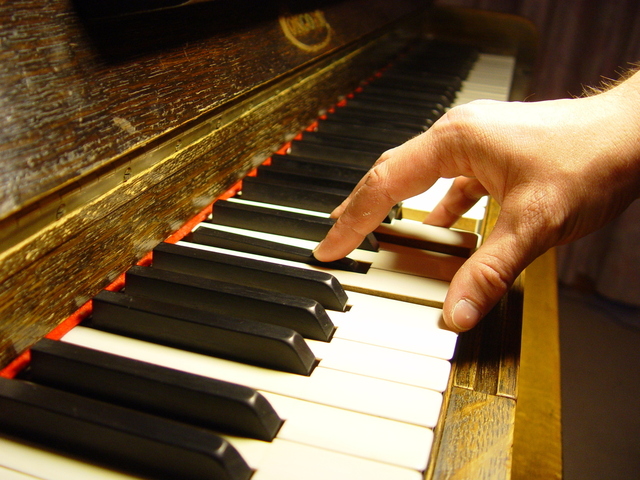One of the biggest frustrations that many of the musicians have who seek my help as an Alexander Technique teacher is with consistency.
Sometimes this seems to be within the practice cycle itself (some days you have it; others you don’t). And sometimes it seems to be the gap between the practice room and the performance.
There are many reasons for these variances in consistency. But one of the most often neglected reason is this:
No matter what you’re practicing at any given moment, you are, for better or for worse, practicing a state of being.
A state of being. Let that sink in for a moment.
This is beyond merely what some might call “a state of mind” (though it sure starts with that). Your state of being when you practice includes what you are doing with your entire self.
It includes how your thinking is impacting your movements (skill and coordination), your choices, your hearing, your receptiveness and your learning, to mention just a few things.
(This question of the quality of “my state of being” was presented to me on a daily basis as I trained to become an Alexander Technique teacher.)
And this state of being has a profound impact not only on how and what you practice, but also, how you’ll perform.
You might notice that when you’re playing well, you’re also in a fairly easy state of being. Your thoughts seem clear, you feel light, mobile and responsive, perhaps even joyful and playful. You feel present. (There are a few exceptions to this, which of course, makes it the rule.)
Often, when I observe and ask questions to a musician frustrated with inconsistency, I’m met with very telling answers. Lots of negative self talk. Lots of bodily tension. A narrow perception of what is “right”. An inability to stop and redirect thought and effort. A rigidity in pedagogical approach. A lack of play and exploration. And more.
The great news is that if you practice improving your state of being, you’ll improve your practice and performance. You’ll more consistently work toward your potential.
So ask yourself as you practice, “What is my state of being?”
The answer to that question you could include other questions:
- How am I using myself? Are my neck and shoulders tense or free? am I bracing myself? Am I breathing freely? Am I letting the ground support me (This is where the Alexander Technique is particularly helpful.)
- Where is my focus of attention? Is it narrow and exclusive or broad in inclusive? (e.g., are you overly focused on one aspect of what you’re doing, like your embouchure, bow grip, etc.) Or does it allow me to hear, feel and think in a flexible, responsive way?
- What kind of energy is motivating me? Am I approaching this practice session (or performance) with love and interest in the music? Or is it more fear, boredom, or perhaps dread? (Let love lead the way, always, no matter how difficult the music may be.)
- Do I let myself take chances? Do I let myself be wrong to explore finding something new, maybe something even better? Am I playful and flexible in my attitude? Can I let myself sound bad for the sake of trying to do something differently?
- Do I allow myself to stop? Do I give myself a chance to regroup and get my bearings when something goes wrong, so that I can improve my chances in my next attempt? Or do I just rush on to the next failed attempt, spiralling toward frustration and inefficiency?
- Am I kind to myself? Do I discern, i.e., do I objectively recognize a problem or challenge that rises up in my playing, approaching it with kind, helpful thinking? Or do I immediately judge, i.e., subjectively jump to negative, useless self-evaluation the moment something goes wrong? (If you practice speaking kindly to yourself during practice, not only will your practice become more effective, but your performances will be more consistently satisfying.)
And you can take the idea of practicing your state of being outside the practice room, as well. As you stay present with yourself, moving easily and lightly, taking time when you need to, breathing easily, speaking kindly to yourself, and finding love and joy in what you do, you continue to develop two of the most fundamental qualities a performer can have: poise and confidence.

Pingback: Becoming process oriented vs outcome oriented | Rena Urso-Trapani